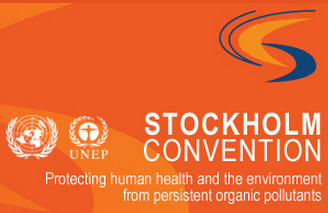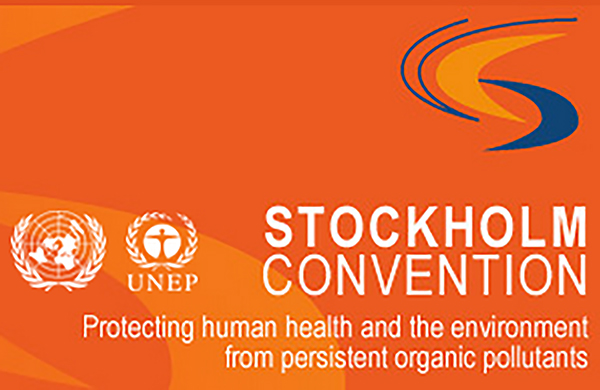 Stockholm Convention is an international environmental treaty under the aegis of United Nations Environment Programme (UNEP), to protect human health and the environment from the chemicals which can exist in the environment for long, can become widespread and can cause Biomagnification thereby becoming hazardous for humans and environment. Stockholm convention aims to eliminate or restrict the production and use of persistent organic pollutants (POPs). The convention calls to outlaw nine of the dirty dozen chemicals, limit the use of DDT to malaria control and curtail inadvertent production of dioxins and furans.
Stockholm Convention is an international environmental treaty under the aegis of United Nations Environment Programme (UNEP), to protect human health and the environment from the chemicals which can exist in the environment for long, can become widespread and can cause Biomagnification thereby becoming hazardous for humans and environment. Stockholm convention aims to eliminate or restrict the production and use of persistent organic pollutants (POPs). The convention calls to outlaw nine of the dirty dozen chemicals, limit the use of DDT to malaria control and curtail inadvertent production of dioxins and furans.
Key Provisions
The convention requires that developed countries provide new and additional financial resources and measures to eliminate the production and use of intentionally produced POPs, eliminate unintentionally produced POPs where feasible and manage & dispose of POPs wastes in an environmentally sound manner taking into account international rules and regulations. Precaution is exercised throughout the Stockholm Convention, with specific references in the preamble, objectives, and provisions on identifying new POPs. Countries are required to make efforts to identify, label and remove PCB-containing equipment by the year 2025, and manage the wastes in an environmentally sound manner, not later than 2028. Each Party is required to develop a plan for implementing its obligations under the Convention.
Dirty Dozens
These include 8 pesticides (aldrin, chlordane, DDT, dieldrin, endrin, heptachlor, mirex, and toxaphene); two industrial chemicals (poly chlorinated biphenyls and hexachlorobenzene) and two unintended byproducts (poly chlorinated dibenzo-p-dioxins and dibenzo furans, commonly referred to as dioxins and furans).
India and Stockholm Convention
India’s Union Cabinet gave its approval to ratify and accede to the Stockholm Convention on Persistent Organic Pollutants on 20 October 2005 but the parliament has not agreed to all the POPs mentioned in Stockholm convention.
And hence, India is yet to ratify the Stockholm Convention.
Related Article – International Environmental Organizations



